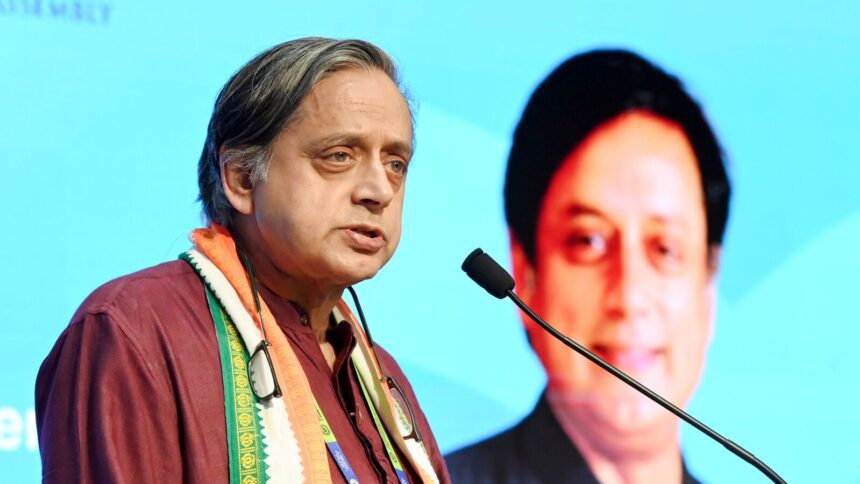Hate Speech and Secularism: The Recent Controversy Surrounding Nitesh Rane’s Remarks
Introduction
In a troubling episode that has once again ignited debates around communalism and secularism in Indian politics, Maharashtra Minister Nitesh Rane has come under fire for his derogatory remarks concerning electronic voting machines (EVMs). This incident has not only stirred political unrest but has also prompted strong reactions from various leaders, including Congress MP Shashi Tharoor, who emphasized the vital importance of inclusivity and secularism as foundational tenets of Indian society.
The Controversial Remarks
While addressing a Hindu Garjana Sabha in Sangli, Nitesh Rane reportedly claimed, “EVM means, Every Vote against Mullah.” Such a statement is not just inflammatory but also deeply divisive, explicitly targeting a particular religious community. Rane’s rhetoric has been criticized for fostering an environment of hate and intolerance, contrary to the ideals established during India’s freedom struggle.
In the face of such comments, Shashi Tharoor articulated that any remarks aimed at inciting division among communities—be it Muslims, Hindus, Christians, or any caste—are fundamentally wrong. He highlighted that the strength of India lies in its diversity and the equality of all citizens, emphasizing that this unity is essential for the country’s progress.
Tharoor’s Defense of Secularism
Tharoor’s comments, made during an interaction with news agency ANI, underscore India’s commitment to secularism. He pointed out that the lessons of the freedom struggle remind us that a nation built on religious identity, as seen with the creation of Pakistan, is not what India’s forebearers envisioned. Leaders like Mahatma Gandhi advocated for a nation where rights and freedoms were guaranteed to all citizens irrespective of their religious or caste backgrounds. Tharoor articulated this sentiment poignantly, stating, “We are all equal individual citizens of India, and that is the only basis on which our country can progress.”
His assertion resonates deeply in today’s political climate, where divisive rhetoric often surfaces to polarize communities. The historical context provided by Tharoor serves as a reminder of the collective struggles that shaped India’s constitutional framework—a framework that champions equality and inclusivity.
Wider Implications and Political Reactions
The backlash against Rane’s remarks wasn’t limited to Tharoor. Prominent political figures across the spectrum have condemned his statements, viewing them as a dangerous precedent that could exacerbate communal tensions. Among these voices is Brinda Karat from the Communist Party of India (Marxist), who has called for Rane’s arrest, labeling his comments as hate speech that threatens the very fabric of India’s society. Karat’s fervor reflects a broader concern regarding the normalization of hate speech in the political arena and its implications for national unity.
Rane’s Previous Controversy
This is not the first time Nitesh Rane has made headlines for controversial remarks. In December last year, he labeled Kerala as "mini-Pakistan," further indicating a pattern of inflammatory comments aimed at delegitimizing political opponents and their regions. By attributing electoral successes to alleged support from “terrorists,” Rane not only undermines democratic processes but also perpetuates stereotypes that can lead to real-world repercussions for innocent individuals belonging to targeted communities.
Conclusion
The controversy surrounding Nitesh Rane’s remarks serves as a stark reminder of the ongoing challenges facing India in maintaining its secular and democratic principles. The strong reactions from various political leaders, particularly Shashi Tharoor’s insightful commentary, highlight a collective yearning for a discourse that upholds dignity, respect, and inclusivity.
As citizens and policymakers engage in these crucial conversations, it is imperative to recognize the power of words and the responsibility that comes with public office. Hate speech undermines not only individual communities but the very essence of Indian democracy. Moving forward, the emphasis must be laid on fostering a political culture where every citizen, irrespective of their background, can thrive in a society that celebrates diversity rather than division.








